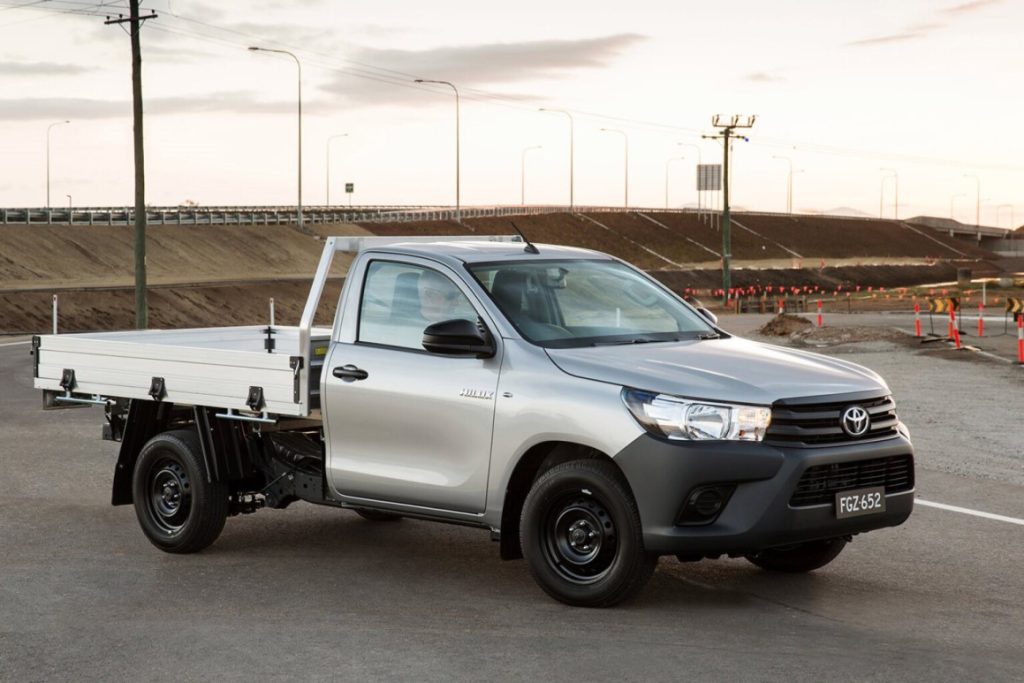If you are a veteran of the tradie industry, then it’s more than likely that you’ve heard the age-old debate of petrol vs diesel. It’s often the case that people will swear by diesel fuel as being the perfect fit for utes.
However, looking past specific biases and examining their differences can reveal that each fuel type has advantages and disadvantages.
Before renting your next ute, always consider what suits your trade business and budget. The differences outlined below will serve as a guide to help you make up your mind.
POWER & PERFORMANCE
Diesel ute models often have the reputation of being slower than their petrol counterparts. When comparing the two in a straight line, this is mostly true.
One of the main ways to increase diesel ute power is to have a turbocharged engine. This will bring the peak power-to-weight ratio closer to petrol engines but can make the vehicle feel sluggish to drive due to turbo lag.
The main advantage of diesel comes in its off-road performance. Low rev torque reduces the chances of stalling when climbing over rocks and obstacles. This performance contrasts with petrol utes that often require higher revs to keep moving uphill and over other obstacles. So, if you are a tradie that finds themselves working on sites without established roads, it’s best to rent a ute with diesel engines.
ENGINE BRAKING
The design of a diesel engine also gives it another advantage when driving off-road. Its ability for unrestricted air intake means that fuel injection determines the power/rpm.
On the other hand, petrol engines require a constant fuel/air mix with a throttle plate regulating the amount of air in the intake.
On average, the engine compression ratio when downhill braking is 20:1 for diesel compared to 9:1 in most petrol engines. In essence, diesel offers higher resistance to an increase in RPM.
This resistance is due to the large air intake of the engine while idling or crawling down a descent.
A petrol engine with a closed intake will draw in less air during braking and hence be more likely to run away than diesel.
It’s important to note that most tradies who work in city or suburban sites will find that driving a rental ute with a petrol engine makes no difference given the relatively flat terrain & smooth roads.
VEHICLE MAINTENANCE
Diesel utes require far more frequent maintenance than a petrol-engine ute. Usually, diesel engines should have their oil changed every 5,000 km and an oil filter every 10,000 km.
Moreover, maintenance and repair costs can build up when parts such as the turbocharger seals start leaking or fuel pumps need replacing. Regular maintenance costs for diesel can eventually overtake that of petrol engine services.
Off-road driving can also increase the risk and number of diesel engine parts breaking down. Petrol engines require fewer spare parts to be kept on hand, being able to be repaired to a point for proper maintenance at a service centre.
Busy tradies may find this an important point, especially if you are driving in a ute that is rent to own, meaning that the vehicle will be yours once the contract is complete.
FUEL ECONOMY
Diesel engines perform better in this category. Higher engine compression means 30-40% better fuel efficiency than petrol engines. This performance translates to 30-40% more kilometres per tank. Tradies constantly moving between sites or travelling into rural areas may find this is a blessing.
CONCLUSION
There are several differences between petrol & diesel engines that can affect the rental process for a tradie ute. It all comes down to where your work regularly takes you. Working on off-road sites or in rural areas means that the performance of the diesel engine ute will suit you better. However, if you are a city worker, petrol utes work just as well, especially its quieter noise profile and less frequent maintenance.
Fortunately, Tradiespec is a ute hire company in Sydney that offers both petrol & diesel utes for rent, meaning you won’t have to go far before weighing the options. Contact us today for flexible ute rental options to get your trade business on the road.

